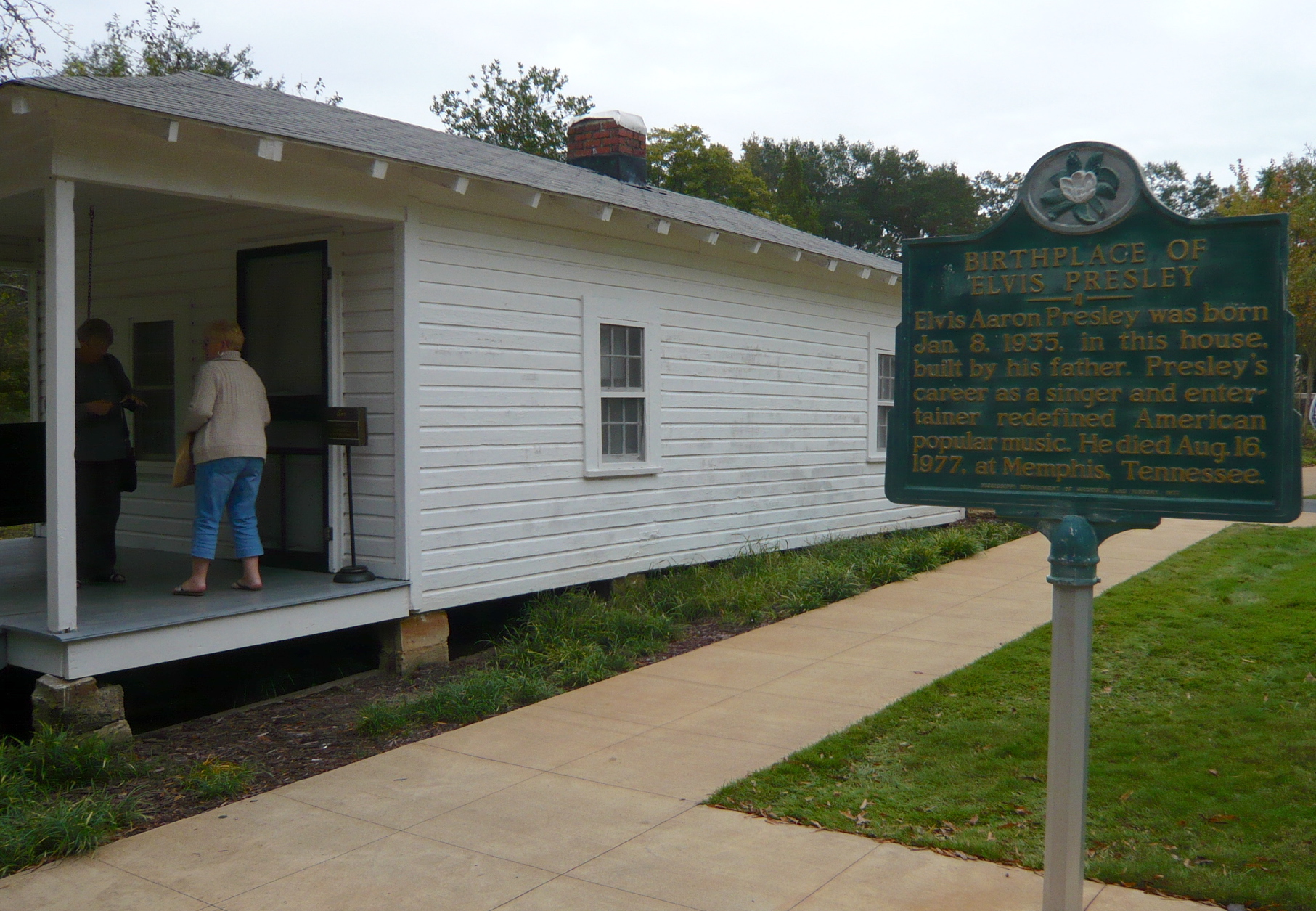I remember an interview with B B King. In the early 1960's blues musicians didn't do well, the young black people listened to Motown/Stax and most white folks hadn't even heard about it. He told a story about him reading an interview in Time or Life in 1964 with the Beatles. Towards the end the band members where asked about their musical influences. Lennon mentioned a number of black blues musicians, one of them B B King. As B B said in the interview: 'After that their have been no problems.'
You are using an out of date browser. It may not display this or other websites correctly.
You should upgrade or use an alternative browser.
You should upgrade or use an alternative browser.
New Elvis biopic and black appropriation in music
- Thread starter retseldrib
- Start date
mansr
Objectionist
If we're going to restrict certain kinds of music to certain kinds of people, we'll need to clearly define those people. That'll get very ugly very quickly. Let's not do that.Black musicians influenced white musicians and vice versa - keep music from all this nonsense.
Enjoy the music.
paulfromcamden
Baffled
Black musicians influenced white musicians and vice versa - keep music from all this nonsense.
As a jazz fan with an interest in the history of the music I just don't see how I could do that. Or why I would wish to.
The music is inextricably entwined with the struggle for civil rights and liberation.
And as @Woodface points out part of the history is the appropriation of black culture by white musicians and white business from ODJB onwards.
Marchbanks
Hat and Beard member
While Elvis grew up a 7 minute walk from his bedroom window and frequented Beale Street as a young teenager he was also heavily influenced by country music, white gospel and black gospel, plus Dean Martin and Frank Sinatra.
That is a mighty big house.
retseldrib
pfm Member
Been there [Gaceland] 4 times now; a really superb experience. Not to mention Studio b in Nashville and of course SUN Studio (Memphis Recording Service).
I was fortunate enough to meet with Sam Phillips (founder and owner of SUN Records) over 25 ish years ago and had a reasonably lengthy chat with him. I of course asked him what was his first impression of seeing Elvis was. His reply was fascinating - overtly polite/ courteous, malnourished, dirty and obviously extremely poor but he sensed something different about him. The rest is history.
When Elvis first entered SUN Studio he was met by Marion Keisker : “Her exchange with Presley on that occasion has since become part of Elvis lore: "I said, 'What kind of singer are you?' He said, 'I sing all kinds.' I said, 'Who do you sound like?' He said, 'I don't sound like nobody.'" https://en.wikipedia.org/wiki/Marion_Keisker
And of course Elvis didn’t sound like anybody that had come before which is why his first listeners were confused as to whether he was Black or White - he didn’t sound white and he didn’t sound black. Hard to imagine this some 68 years later!
Interestingly, Elvis’ most commercially successful album and film was Blue Hawaii (1961) - light years away from his Tupelo/ Memphis cultural and musical influences. Unashamedly Hawaiian appropriation I suppose.
I was fortunate enough to meet with Sam Phillips (founder and owner of SUN Records) over 25 ish years ago and had a reasonably lengthy chat with him. I of course asked him what was his first impression of seeing Elvis was. His reply was fascinating - overtly polite/ courteous, malnourished, dirty and obviously extremely poor but he sensed something different about him. The rest is history.
When Elvis first entered SUN Studio he was met by Marion Keisker : “Her exchange with Presley on that occasion has since become part of Elvis lore: "I said, 'What kind of singer are you?' He said, 'I sing all kinds.' I said, 'Who do you sound like?' He said, 'I don't sound like nobody.'" https://en.wikipedia.org/wiki/Marion_Keisker
And of course Elvis didn’t sound like anybody that had come before which is why his first listeners were confused as to whether he was Black or White - he didn’t sound white and he didn’t sound black. Hard to imagine this some 68 years later!
Interestingly, Elvis’ most commercially successful album and film was Blue Hawaii (1961) - light years away from his Tupelo/ Memphis cultural and musical influences. Unashamedly Hawaiian appropriation I suppose.
retseldrib
pfm Member
I have since seen it and you’re right its not really an accurate summary BUT it does position Elvis as being almost solely influenced by the Blues and Black Gospel and does next to nothing to explain his unique contribution. I will stand corrected but I’m not sure it even mentions Blue Moon of Kentucky (the B- side to and recorded before That’s All Right Mama) which was a radical re-interpretation of Bill Monroes bluegrass classic. Elvis’ music output during his lifetime was eclectic and mostly not really explained to the audience for the duration of the film.
Notwithstanding, the film would need to be at least 3 times as long to pack everything in.
Notwithstanding, the film would need to be at least 3 times as long to pack everything in.
Yank
Bulbous Also Tapered
Some people go on a pilgrimage to Mecca, Some people go on a pilgrimage to Gracelands. We went in 2009. Rock n Roll. (the lounge at Gracelands)
Most of the room decor at Graceland came straight from department store window displays. Elvis would drive by Goldsmith's or Lowenstein's, see a display he liked, and call up the store and take the whole thing. Even the Jungle Room came about this way.
miktec
retired
Apparently the new Elvis biopic makes a big deal of Elvis ‘taking black peoples music’ and becoming successful off the back of this because he was white.
It’s amazing how this urban myth has endured for so long. Most of Elvis’ actual chart hits in the 50s were written by white people; not least Lieber & Stoller who were white Jewish men.
.....
Ultimately Elvis became so successful because he sounded and looked so very different to anyone who had come before him.
Years ago I read a very good book on this very topic - it outlined the initial appropriation/commodification of black music by white musicians for white audiences and the complex of reasons (mainly down to segregation) but also looks at the later rise of black musicians (up to and including Michael Jackson) and the 'whitification' of black music in 'crossover' - worth a read if you are even remotely interested:
The Death of Rhythm and Blues: Nelson George
https://www.amazon.co.uk/dp/0142004081/?tag=pinkfishmedia-21
This site contains affiliate links for which pink fish media may be compensated.
Yank
Bulbous Also Tapered
the 'whitification' of black music in 'crossover'
I've always thought of Motown as somewhat "whitified", black music calculated to be non-threatening and to appeal to white teenagers.
Aethelist
pfm Member
Most of the room decor at Graceland came straight from department store window display
Yeah some of the interior decor was a bit tacky but the house itself had some really nice original 1930's features. I loved it.
We also visited his birthplace. That was one bijou residence.

miktec
retired
I've always thought of Motown as somewhat "whitified", black music calculated to be non-threatening and to appeal to white teenagers.
Yup - but logical given its Doo-Wop origins .....
I read this book many years ago. He lost me already on page two or so when he wrote (I try to translate, because i read it in German): Ten years later (after the emergence of R&B in the 1940ies) this genre has ben called rock'n roll to mask its black roots.Years ago I read a very good book on this very topic - it outlined the initial appropriation/commodification of black music by white musicians for white audiences and the complex of reasons (mainly down to segregation) but also looks at the later rise of black musicians (up to and including Michael Jackson) and the 'whitification' of black music in 'crossover' - worth a read if you are even remotely interested:
The Death of Rhythm and Blues: Nelson George
miktec
retired
I read this book many years ago. He lost me already on page two or so when he wrote (I try to translate, because i read it in German): Ten years later (after the emergence of R&B in the 1940ies) this genre has ben called rock'n roll to mask its black roots.
I think you need to re-read the book
Lol, thanks for the advice. I considered to do so, and in fact already started again. Well, his agenda obviously is black identity politics. So be it, but to understand American music LeRoi Jones' Blues People was significantly much more rewarding for me.I think you need to re-read the book
https://www.amherst.edu/media/view/91518/original/Baraka+-+The+Modern+Scene.pdf
miktec
retired
Well, his agenda obviously is black identity politics.
I guess you must have got to page 3 this time then .....



